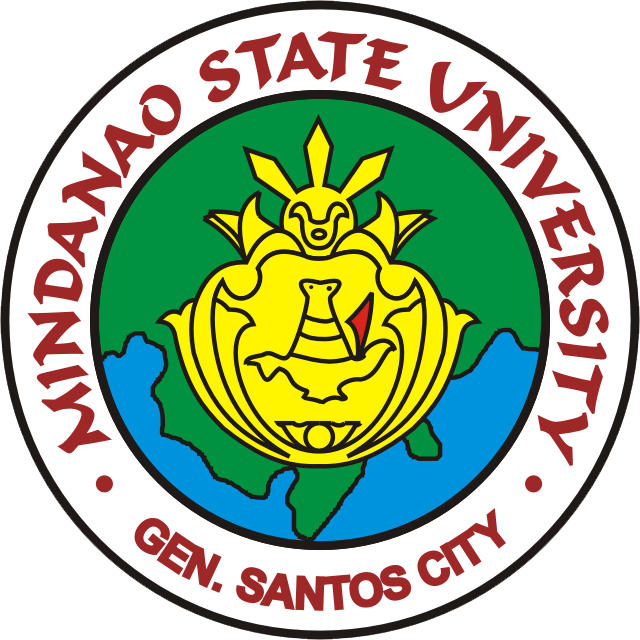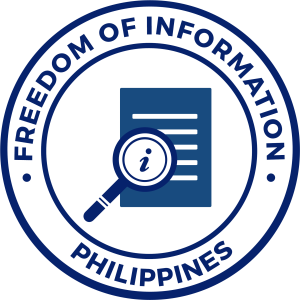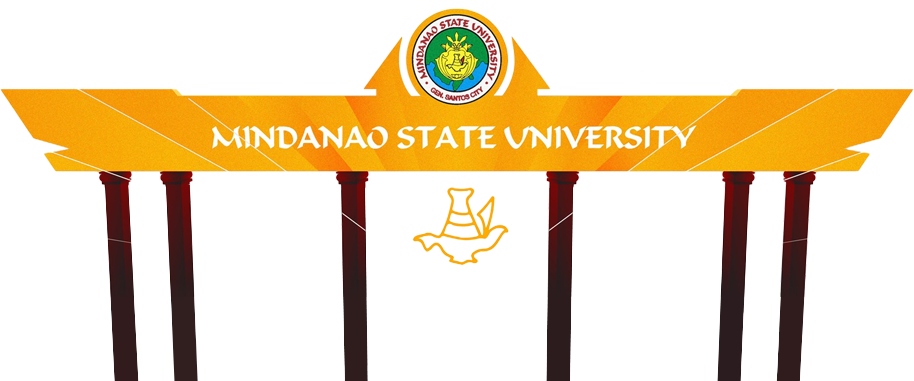MSU-Gensan and LGU-General Santos Sign Landmark Agreement to Establish Coastal and Marine Conservation and Research Center
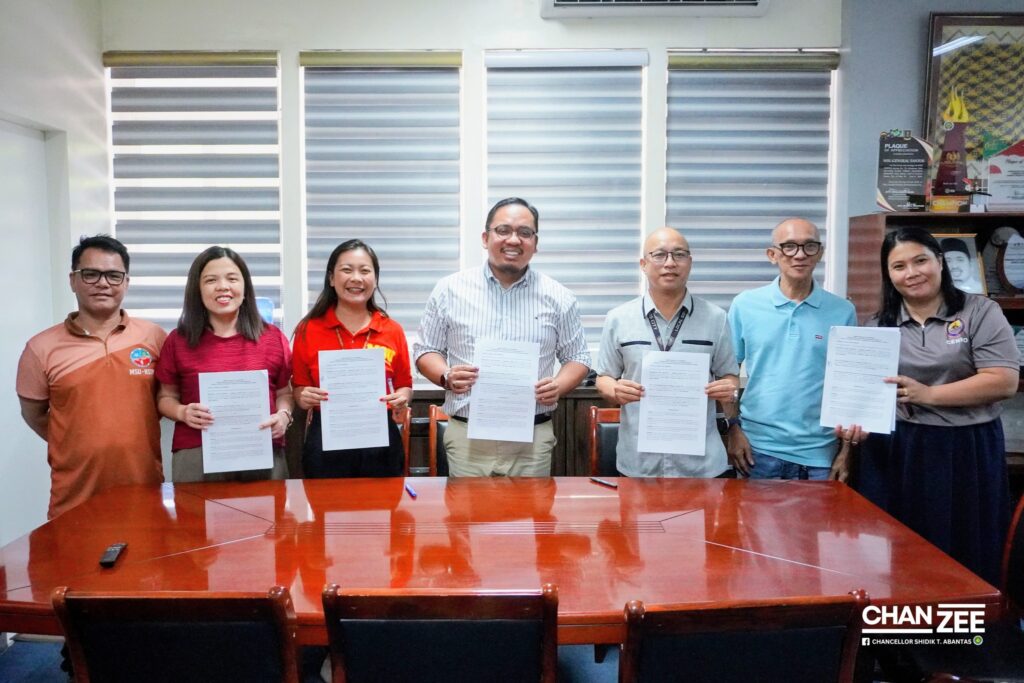
Mindanao State University – General Santos, under the leadership of Chancellor Shidik Zed T. Abantas, proudly announces the formal signing of a Memorandum of Agreement with the Local Government Unit of General Santos City led by Mayor Lorelie G. Pacquiao and the Sarangani Bay Protected Seascape – Protected Area Management Board for the Establishment, Operation, and Management of the Gensan Coastal and Marine Conservation and Research Center. The agreement, finalized on May 16, 2025, marks a significant milestone in MSU-Gensan’s steadfast commitment to environmental stewardship, research excellence, and community partnership. The center will serve as a hub for scientific research, conservation initiatives, education, and community engagement aimed at protecting, conserving, and sustaining the coastal and marine environments of General Santos and Sarangani Bay. Chancellor Abantas expressed his enthusiasm for this collaborative effort, stating:“This agreement is more than just a document; it is a shared promise to future generations that we will take bold, deliberate steps to protect our marine and coastal resources. It underscores our responsibility as a university to advance science-based solutions while empowering local communities.” Mayor Lorelie G. Pacquiao also emphasized the LGU’s strong support for sustainable development and marine conservation, recognizing the critical importance of safeguarding Sarangani Bay, a vital natural resource for food security, tourism, and local livelihoods. The new Gensan Coastal and Marine Conservation and Research Center will conduct cutting-edge research on marine biodiversity, coastal ecosystems, and sustainable fisheries. It will implement conservation and habitat restoration projects, promote environmental education and public awareness campaigns, support local communities in developing sustainable livelihoods that align with conservation goals, and strengthen local, national, and international partnerships for marine conservation. This initiative aligns with MSU-Gensan’s strategic vision of delivering meaningful research and extension services that address real-world challenges, while also reinforcing the Philippines’ commitments under the Sustainable Development Goals (SDGs), particularly SDG 14: Life Below Water. With this partnership, MSU-Gensan affirms its role as an academic institution dedicated to building a sustainable and resilient future for Mindanao and beyond.
Scholarship & Financial Aid
No Name of Scholarship Documentary Requirements Maintaining Scholarship Requirements I. University Scholars 1 Academic Scholar (AS) They shall maintain a grade point average of 2.0 and abide by the University rules and regulations pertinent to their scholarship. 2 Chorale They shall maintain a grade point average of 3.0 and abide by the University Rules and regulations pertinent to their grant. 3 Cultural Community Grantees (CCG) They shall maintain a grade point average of 3.0 and abide by the University Rules and regulations pertinent to their grant. 4 Kabpapagariya Ensemble (KE) They shall maintain a grade point average of 3.0 and abide by the University Rules and regulations pertinent to their grant. 5 Special Muslim Grantees (SMG) They shall maintain a grade point average of 2.75 and abide by the University Rules and regulations pertinent to their grant. 6 Sports Development Grantees (SDG) 7 Special Tribal Grantees (STG) They shall maintain a grade point average of 2.75 and abide by the University Rules and regulations pertinent to their grant. 8 Employee Dependent (ED) 9 Employee Privilege II. Government Funded (Outside MSU) 10 Aklat-EDUKAR GSC City Gov’t 11 Barangay Scholars 12 LGU-Gensan/Antonio 13 CHED (Region XI, XII & XIII) 14 Bureau of Fisheries & Aquatic Resources 15 Department of Science & technology (DOST) 16 TDP-TES – Applicant mus not be a recipient of TDP, TES, StuFAP and other government-funded scholarships in the previous academic years Student grantees must have a passing general weighted average,regardless of the passing grade for each subject – Certificate of registration/Enrollment – Original and recent copy of the Certificate of Indigency as proof of income, duly issued by the Punong Barangay where the applicant resides. – Fully Accomplished TDP SUCs Application Form. Student grantees must have a passing general weighted average, regardless of the passing grade for each subject 17 TES Listahan 18 Government Services Insurance System (GSIS) 19 Kabugwason-Paglaum Provincial Government 20 Local Government Units (LGU) 21 NCIP 22 OWWA 23 Paaral para sa Saranggani (PPSS) III. Private Scholars 24 Gabay-Guro Smart/PLDT 25 National Grid Corporation of the Phils, (NGCP) 26 RD Foundation INC. 27 SANTEH 28 Sigay Kauyagan 29 DBP Rise
₱3.5 Milyong Halaga ng Farm Equipment, Ipinamahagi sa mga Magsasaka ng Maasim, Sarangani sa Ilalim ng OPAPRU-MNLF-MSU Transformation Program.
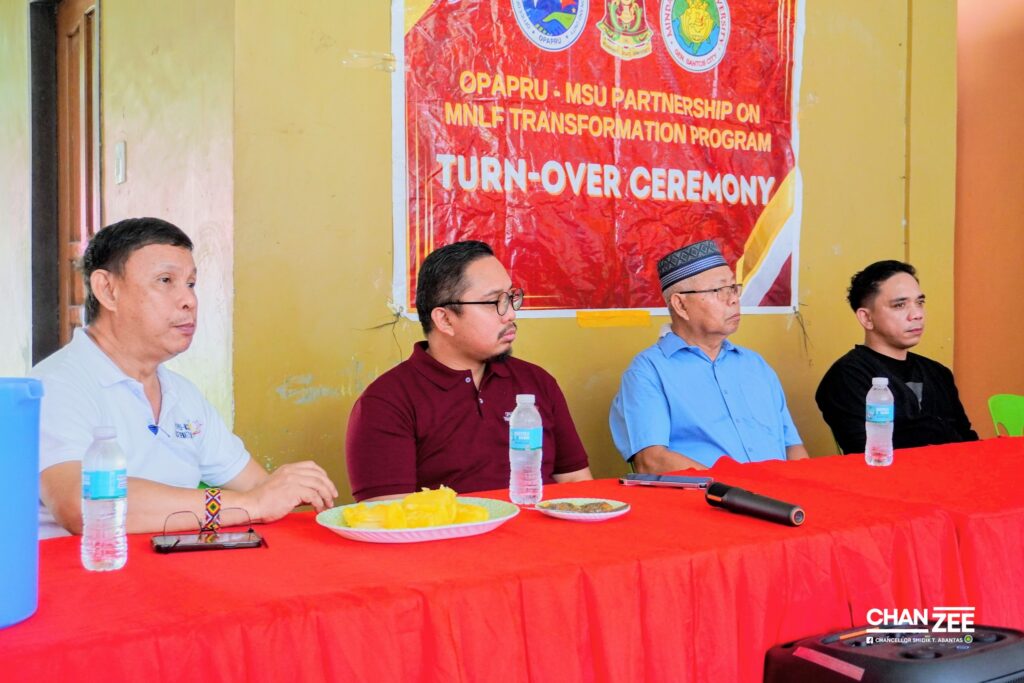
Noong Mayo 16, 2025, bumisita ang delegasyon mula sa Mindanao State University – General Santos City sa bayan ng Maasim, Sarangani upang saksihan ang pormal na turn-over ng mga kagamitang pangsaka na nagkakahalaga ng ₱3.5 milyon. Ang aktibidad ay bahagi ng OPAPRU–MNLF–MSU Transformation Program na layong suportahan ang mga magsasaka sa MNLF communities at itaguyod ang kapayapaan at kaunlaran sa rehiyon. Mainit na sinalubong ang grupo ng MSU-GenSan ng kagalang-galang na MP Datu Utto Salem D. Cutan, Secretary General ng MNLF at kasalukuyang miyembro ng Bangsamoro Parliament. Ang seremonya ng pamamahagi ay nagbigay ng tatlong corn shellers, tatlong mobile threshers, at dalawang mobile rice millers bilang dagdag na suporta sa kabuhayan ng mga benepisyaryong magsasaka. Bilang bahagi rin ng mas malawak na programang tulong, nauna nang naipamahagi ang mga fertilizers, grafted trees at mga punla na may kabuuang halagang ₱1.5 milyon. Layon ng mga inisyatibong ito na mapalakas ang produktibidad ng mga magsasaka, mapabuti ang kanilang kita, at magbigay ng matatag na pundasyon para sa pangmatagalang kapayapaan sa pamamagitan ng inclusive at sustainable development. Lubos ang pasasalamat ng MSU-GenSan sa suporta at koordinasyon ng IPDM team sa pangunguna ni Dr. Mayong G. Aguja bilang Project Leader, kasama ang MSU-GenSan TWG team. Ang aktibidad na ito ay malinaw na patunay sa pangako ng MSU-GenSan na tumulong sa pag-unlad ng mga komunidad ng MNLF at itaguyod ang mga layunin ng Sustainable Development Goals (SDGs), partikular ang pagtataguyod ng no poverty, zero hunger, at peace, justice and strong institutions.
MSU-General Santos Advances Internationalization through Participation in CHED-led Erasmus+ and FSTP Mindanao Caravan
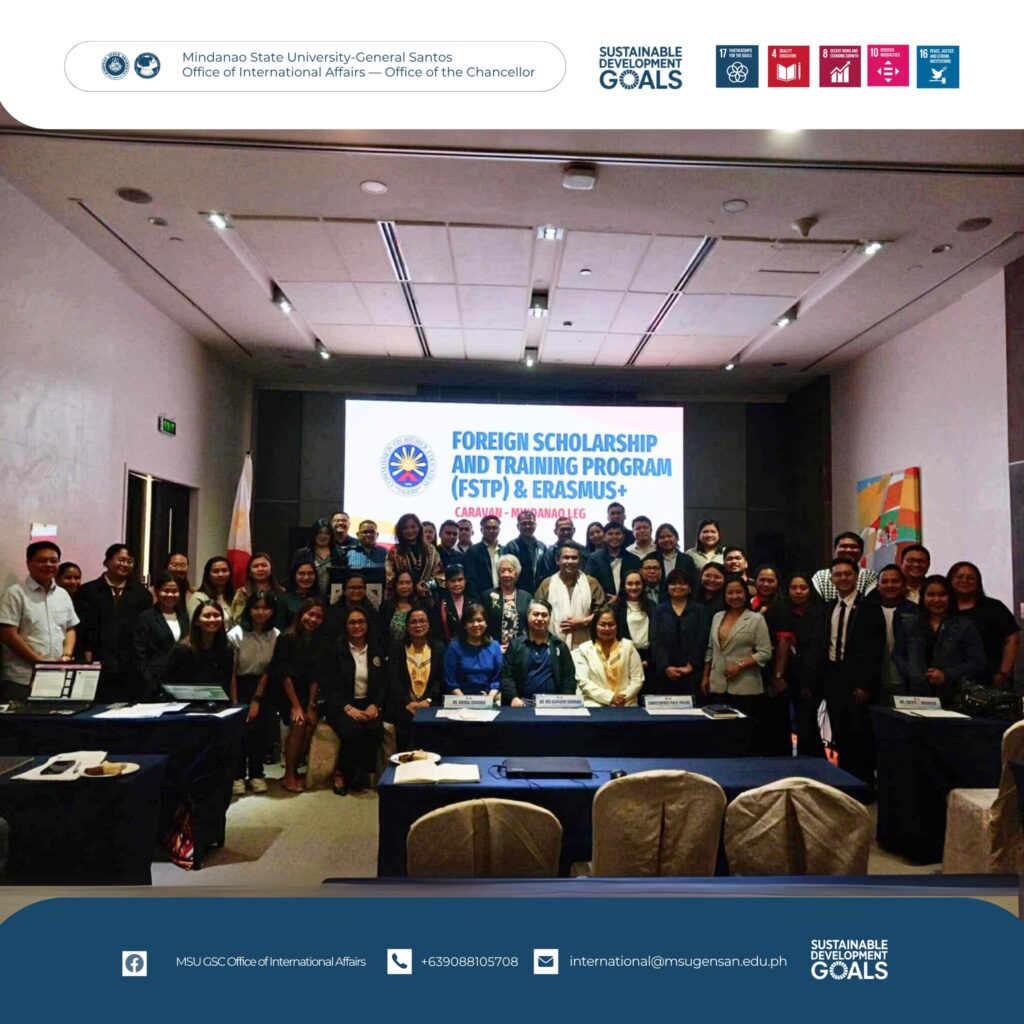
Mindanao State University–General Santos, under the leadership of Chancellor Atty. Shidik T. Abantas, MDM, LLM, continues to advance its commitment to internationalization by actively engaging in strategic national initiatives. Representing the university, Dr. Anderson V. Villa, Director of the Office of International Affairs, joined the Erasmus+ and FSTP Caravan – Mindanao Leg held on June 11–12, 2025, at Park Inn by Radisson in Davao City. Organized by the Commission on Higher Education Regional Office XI in collaboration with the CHED International Affairs Service (IAS), the two-day caravan convened over 100 internationalization focal persons from Higher Education Institutions (HEIs) across Regions IX, X, XI, XII, and Caraga. The event served as a vital platform to promote global academic mobility, strengthen institutional partnerships, and advance access to international scholarship and training opportunities through the Erasmus+ Program and the Foreign Scholarship and Training Program (FSTP). The first day focused on the Erasmus+ Program, the European Union’s flagship initiative for student and faculty exchanges, joint degree development, and institutional capacity-building. Participants received comprehensive orientations about the program’s components, opportunities for collaborative research, and practical strategies for launching successful exchange initiatives. A highlight of the day was the inspiring testimony of Mr. Janreve Odango from CHED Region XII, who shared his transformative journey as an Erasmus Mundus scholar in Latvia, offering valuable guidance for institutional representatives and future scholars. Participants also heard firsthand accounts from other Filipino scholars and program alumni currently engaged in Erasmus+ initiatives, who emphasized the program’s impact on cross-cultural understanding, academic enrichment, and professional growth. These stories underscored the crucial role of international partnerships in strengthening the global competitiveness of Philippine HEIs. On the second day, the seminar expanded its scope to introduce a broad array of foreign scholarship and training opportunities offered through bilateral government agreements and embassy-affiliated programs. Delegates from Korea, Japan, Hungary, Taiwan, the United States, and Israel presented diverse grant opportunities designed for Filipino students, faculty, and researchers. Scholars who benefited from these programs shared how international education broadened their professional horizons, fostered innovation within their institutions, and contributed to national development goals. MSU-Gensan’s active participation in the caravan demonstrates its strategic commitment to internationalization as a cornerstone of institutional development. By engaging in initiatives such as Erasmus+ and FSTP, the university aims to broaden academic networks, foster collaborative research, and expand access to global learning opportunities. These efforts empower students, faculty, and staff to cultivate global competencies and lead meaningful international engagements that strengthen MSU-Gensan’s position as a resilient, inclusive, and globally competitive institution. Moreover, the university’s involvement in these programs supports the realization of United Nations Sustainable Development Goals (SDGs)—especially SDG 4 (Quality Education), SDG 8 (Decent Work and Economic Growth), and SDG 17 (Partnerships for the Goals). By promoting lifelong learning, enhancing employment readiness, and building equitable, cross-border partnerships, MSU-Gensan continues to demonstrate its commitment to sustainable development and global academic excellence.
MSU-Gensan Student Council Resolution Spurs CHED to Draft National Anti-Red-Tagging Policy
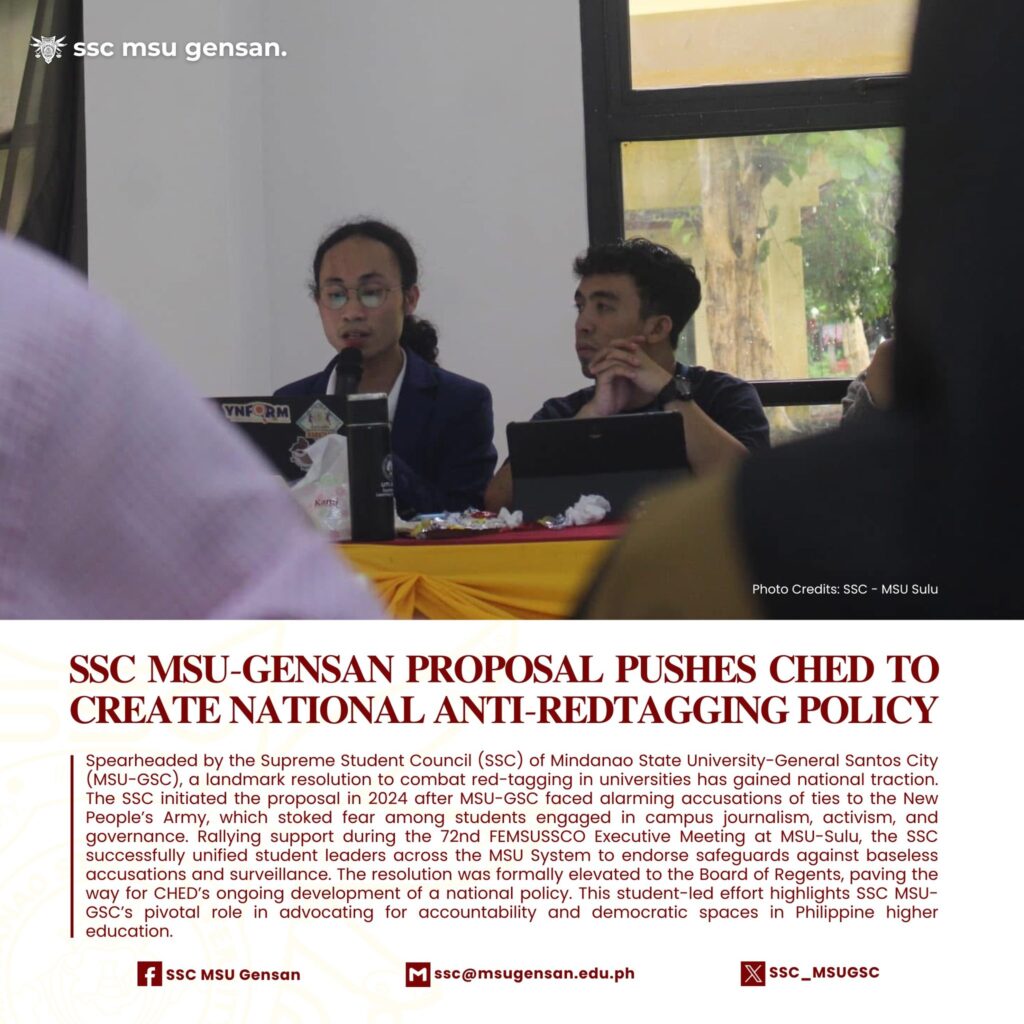
In a major breakthrough for student rights and democratic advocacy, the Commission on Higher Education (CHED) is officially moving forward with the development of a national policy aimed at eradicating red-tagging practices within colleges and universities across the Philippines. This progressive step responds to a formal resolution authored and championed by the Supreme Student Council (SSC) of Mindanao State University – General Santos City (MSU-GSC), following a deeply troubling wave of red-tagging incidents in 2024 that unjustly associated the university with the New People’s Army (NPA). These allegations, lacking evidence and due process, sparked widespread fear and anxiety within the university community. Students involved in campus journalism, activism, and student governance felt particularly vulnerable—many facing unwarranted accusations, intrusive surveillance, and harassment simply for exercising their constitutional rights to free expression and civic engagement. The events painted a disturbing picture of a hostile academic environment, calling into question the state of academic freedom and student protection in higher education. Moved by the urgency of the situation, MSU-GSC’s Supreme Student Council rose to the occasion, bringing the issue to national attention during the 72nd Federation of MSU Supreme Student Councils (FEMSUSSCO) Executive Meeting held at MSU-Sulu. There, they successfully tabled a resolution calling for the institutionalization of policies that protect students from red-tagging, unjust profiling, and political persecution. The resolution resonated with fellow student leaders from other MSU campuses and was adopted with overwhelming support. The resolution was later formally presented to the MSU Board of Regents (BOR) through Student Regent Hon. Edriane Casipong, who served as the primary voice for student constituents on the university’s highest governing body. In his appeal, Casipong emphasized that red-tagging undermines not only student rights but also the integrity and democratic foundations of educational institutions. He reiterated that without clear safeguards, students risk being silenced, criminalized, or excluded from the very spaces designed to nurture leadership, innovation, and service. In response to this bold student-led initiative, CHED has begun taking concrete steps toward creating a comprehensive national anti-red-tagging policy. This landmark policy aims to set clear guidelines and mechanisms to shield students and academic communities from political labeling and persecution, ensuring that campuses remain safe spaces for intellectual freedom, civic discourse, and activism. Student councils, human rights groups, and education stakeholders have since praised the development, noting it as a turning point for higher education governance in the Philippines. Many see this move as a critical step in dismantling a culture of fear and replacing it with one of accountability, transparency, and participatory leadership. As CHED moves forward with stakeholder consultations and policy drafting, student leaders nationwide are hopeful that this initiative will usher in a more secure, inclusive, and democratic academic environment—where every student can freely express themselves, participate in social movements, and contribute to nation-building without fear of being vilified or targeted. This milestone is not just a victory for MSU-Gensan or the MSU System—it is a powerful testament to the strength of unified student advocacy and a reminder that even the most entrenched issues can be challenged and changed through persistence, dialogue, and courage.
Admission Guidelines
Guidelines in Admitting Students to MSU – General Santos A student seeking admission to the University should have graduated from any Senior High School (Grade 12) recognized by the Department of Education and pass the MSU System Admission and Scholarship Examination (SASE). Freshmen Printed SASE Result Form 138 / SHS Card (Original) Good Moral Certificate (Original) PSA copy of Birth Certificate Printed Admission Form (2 copies downloaded from online) 2×2 Picture (2 pcs) Certificate of Tribe Membership If MUSLIM – Certificate from National Commission on Muslim Filipino If LUMAD – Certificate from National Commission on Indigenous People For MSU employees dependent (son/daughter, brother/sister, direct grandchildren): Certification from HRMO; For scholarships other than the MSU granted: Notice of Scholarship Award issued by sponsoring agency (i.e. DOST, CHED, etc.). Returning Students With Leave of Absence (LOA) (for 1 year, but applied every semester) Request Evaluation of Grades from the Registrar’s Office and attach it with the approved LOA. Proceed to the Department/ College for an interview. If approved, proceed to the enrollment process. Without Approved Leave of Absence (LOA) Request Evaluation of Grades from the Registrar’s Office. Apply for readmission at the Admission Office. If readmission is permitted, secure Application for Admission Form (AAF) from the Admission Office. Proceed to Department/College for evaluation and approval of AAF. If the AAF is approved, proceed to the enrolment process. (Note: The above guidelines may apply only to those students with good standing and are not dismissed from the program, otherwise Admission is DENIED.) Transferees from Other Schools Inquire in the Department/College for availability of slots. Present Transcript of Records/Copy of Grades from previous school attended for checking if compliant of the following: At least one (1) year in college Earned at least 30 creditable units GPA of 2.00 or better No failures (Note: If from within MSU System, only one (1) Failure grade is allowed.) If compliant, Department/College recommends to the Office of the Vice Chancellor for Academic Affairs (OVCAA) for scheduling of Diagnostic Test. (Note: Diagnostic Test is not required for transferees from campuses of MSU.) Take the Diagnostic Test. If passed, OVCAA issues certification and endorses to the Admission Office. Secure an Application for Admission Form (AAF) from the Admission Office. Proceed to the Department/College for evaluation and approval of AAF. If the AAF is approved, proceed to the enrolment process. Professional Education Students Inquire in the College of Education for availability of slots. If a slot is available, secure the Application for Admission Form (AAF) from the Admission Office. Proceed to the College of Education/Department for evaluation and approval of AAF. If the AAF is approved, proceed to the enrolment process. Second Degree Takers Inquire in the Department/College for availability of slots. If a slot is available, secure the Application for Admission Form (AAF) from the Admission Office. Proceed to Department/College for evaluation and approval of AAF. If the AAF is approved, proceed to the enrolment process. Graduates of Diploma/Technology Programs Inquire in the Department/College for availability of slots. If a slot is available, secure the Application for Admission Form (AAF) from the Admission Office. Proceed to Department/College for evaluation and approval of AAF. If the AAF is approved, proceed to the enrolment process. Cross Enrollees From Within MSU System (No Admission Test) Present Permit to Cross Enroll and secure Application for Admission Form (AAF) from the Admission Office. Proceed to Department/College for evaluation and approval of AAF. If the AAF is approved, proceed to the enrolment process. From other Schools (With Diagnostic Test) Present Permit to Cross Enroll, take the Diagnostic Test, and secure Application for Admission Form (AAF) from the Admission Office. Proceed to Department/College for evaluation and approval of AAF. If the AAF is approved, proceed to the enrolment process.
MSU System Curriculum Committee conducts comprehensive program evaluation at MSU-Gensan
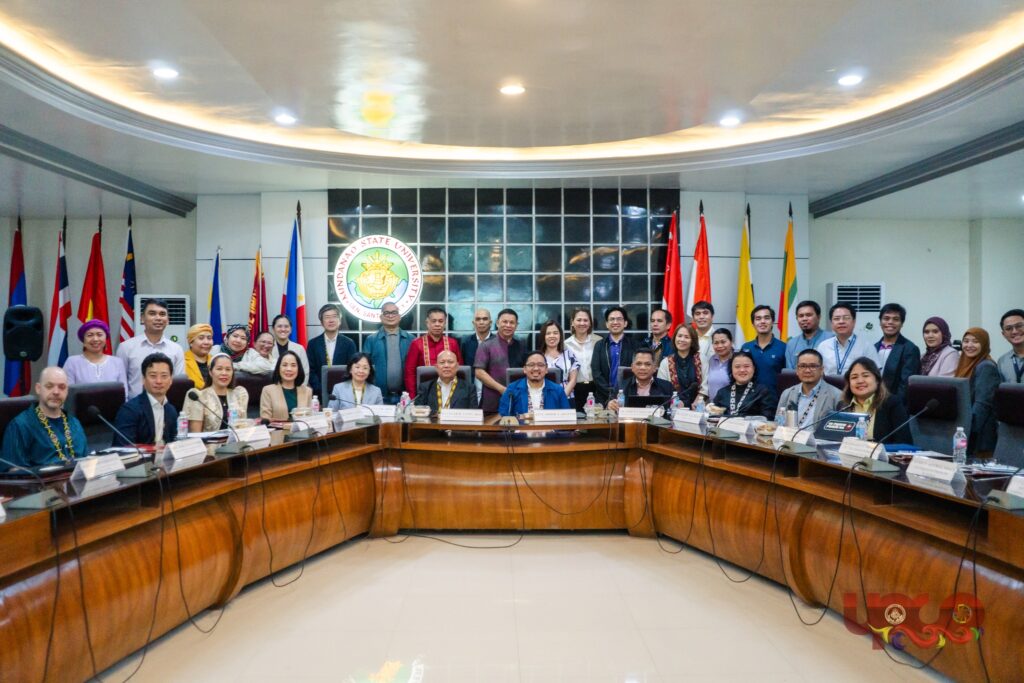
In line with its commitment to academic excellence and quality assurance, the Mindanao State University System Curriculum Committee (SCC), led by Vice President for Academic Affairs Dr. Alma E. Berowa, conducted a thorough evaluation of academic programs at MSU-General Santos City on June 2–3, 2025. The activity formally opened with a welcome message from Dr. Mishell D. Lawas, Vice Chancellor for Academic Affairs, who underscored the significance of academic introspection in institutional development. “Each evaluation is an opportunity to listen, reflect, and recalibrate—because the best curriculum is one that not only meets the standards but also anticipates the needs of the communities we serve,” Dr. Lawas said. Chancellor Shidik T. Abantas, MDM, LLMik, also delivered his message, highlighting the value of collaborative evaluation in shaping the university’s academic direction. “I hope this visit opens not only the door for program approvals, but also for new perspectives and shared aspirations for the academic growth of our university and meaningful service of our communities,” he noted. Programs from multiple academic units were reviewed, including the Bachelor of Science in Nursing under the College of Medicine; the Bachelor of Science in Chemistry and Bachelor of Science in Physics from the College of Natural Sciences and Mathematics; and the Bachelor of Science in International Relations under the Institute of Islamic, Arabic, and International Studies. Graduate programs assessed included the Master of Science in Mathematics and Master of Science in Information Technology (College of Natural Sciences and Mathematics), as well as the Master of Science in Agricultural Business Management and Master of Agricultural Business Management under the College of Agriculture. While the SCC commended several strengths across the programs reviewed, it also identified key areas for improvement. These included ensuring stronger curricular alignment with national standards, upgrading faculty credentials, enhancing documentation and internal quality assurance mechanisms, and improving learning facilities and student services. Additional concerns were raised about enrollment strategies, admissions policies, and the promotion of academic inclusivity. In response, MSU-General Santos City reaffirmed its full commitment to acting on the SCC’s recommendations. The administration emphasized its dedication to continuously enhancing program quality and ensuring alignment with both national and global standards, providing students with an education that is not only relevant and inclusive but also transformative.
MSU-General Santos Chancellor Administers Oath to Promoted and Tenured Faculty
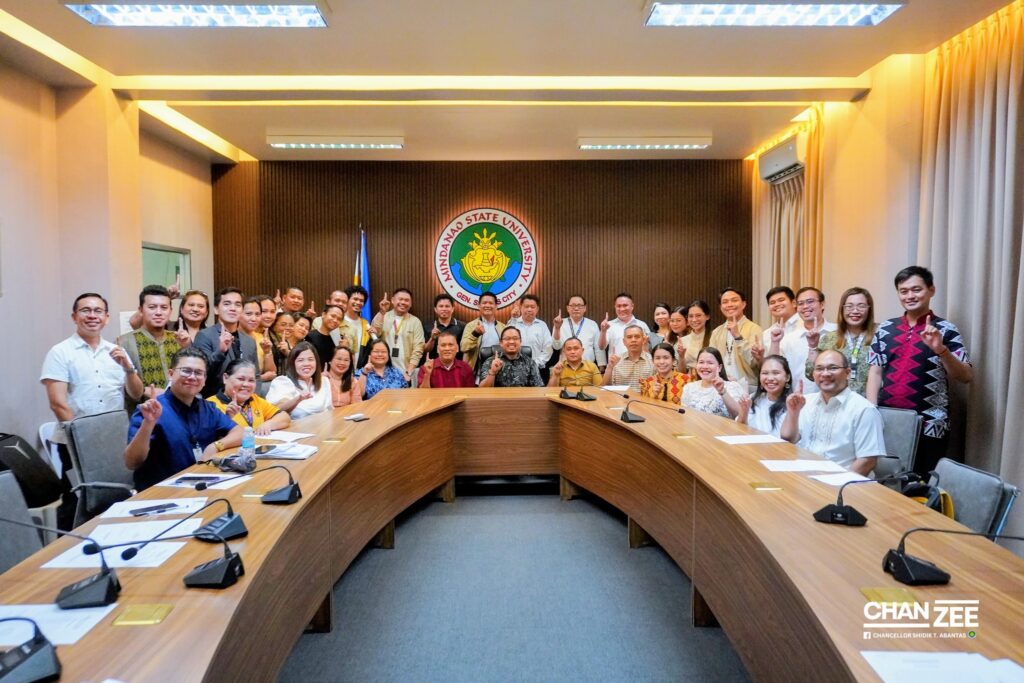
Mindanao State University – General Santos City proudly celebrated the academic achievements and professional advancement of its faculty as Chancellor Shidik Zed T. Abantas formally administered the oath of office to the university’s newly promoted and tenured faculty members on June 3, 2025. The ceremony served as a meaningful recognition of the dedication, excellence, and service that these faculty members have demonstrated throughout their careers at MSU-General Santos. It also reinforced the university’s commitment to fostering faculty development, promoting academic excellence, and supporting the professional growth of educators who serve as the backbone of the institution. Chancellor Abantas expressed his heartfelt congratulations to the newly promoted and tenured faculty, acknowledging their valuable contributions to MSU-General Santos’ mission of delivering quality education, innovative research, and meaningful community engagement. “I am very happy to have administered the oath of our newly promoted and tenured faculty members. Congratulations and may you all continue to serve MSU and the people,” Chancellor Abantas said. University officials noted that faculty promotions and tenure are earned through rigorous evaluation processes that recognize excellence in teaching, research, and service. These milestones not only celebrate individual achievements but also strengthen MSU-General Santos’ reputation as a center of learning that invests in its people. This commitment aligns with the university’s strategic goals to build a strong, motivated, and highly qualified faculty workforce dedicated to producing graduates who are prepared to lead, innovate, and make a positive impact in their communities and beyond. As MSU-General Santos continues to uphold its tradition of excellence, it also reaffirms its dedication to supporting its faculty members in their professional journeys, empowering them to deliver transformative education and serve the people with integrity, competence, and passion. Congratulations once again to all our newly promoted and tenured faculty members!
MSU-General Santos hosts 4-day training workshop on ISO 21001:2018 to boost academic and adminitrative excellence

In its ongoing pursuit of academic excellence and quality assurance, Mindanao State University – General Santos, through its Quality Assurance Management Services Office (QuAMSO), launched the ISO 21001:2018 Educational Organizations Management System (EOMS) Awareness, Documentation & Audit Course Training Workshop from May 26 to 29, 2025. QuAMSO Director Dr. Monsour A. Pelmin officially opened the program, underscoring the importance of readiness and proactive quality assurance. “This workshop is a key step in preparing our university’s academic and administrative sectors for ISO 21001:2018 compliance,” Dr. Pelmin said. “It equips us with the knowledge and tools to embed quality at all levels of our operations.” “These topics are incredibly relevant,” shared Dr. Josh Elisha Octura, faculty from the College of Agriculture. “Through this workshop, I expect that we will not just learn the standards—but we will prepare ourselves to build systems that genuinely improve the quality of education we offer.” The workshop featured technical sessions facilitated by certified trainers from TUV Rheinland. Mr. Ronaldo Daracan led the first two days, covering foundational concepts of the ISO 21001:2018 standard. Prof. Christian Bryan Bustamante took over on Days 3 and 4, exploring advanced topics such as documentation management, clause study workshops, and internal audit simulations. Participants examined key components of EOMS, including SMART objective setting, risk assessment and treatment, documentation requirements, and internal audit procedures. Clause study workshops and hands-on exercises were integrated to reinforce understanding and promote collaborative learning. The program concluded with a final assessment to evaluate participants’ mastery of essential elements, particularly the internal audit process—a critical requirement for achieving and maintaining ISO 21001:2018 certification. Beyond technical compliance, the training underscored the role of quality documentation and continuous improvement in institutional growth. It marked another milestone in MSU-General Santos’s broader commitment to elevating academic standards and aligning with international best practices.
MSU-General Santos Launches IDEA Admission Policy to Champion Inclusivity, Diversity, Equity, and Access
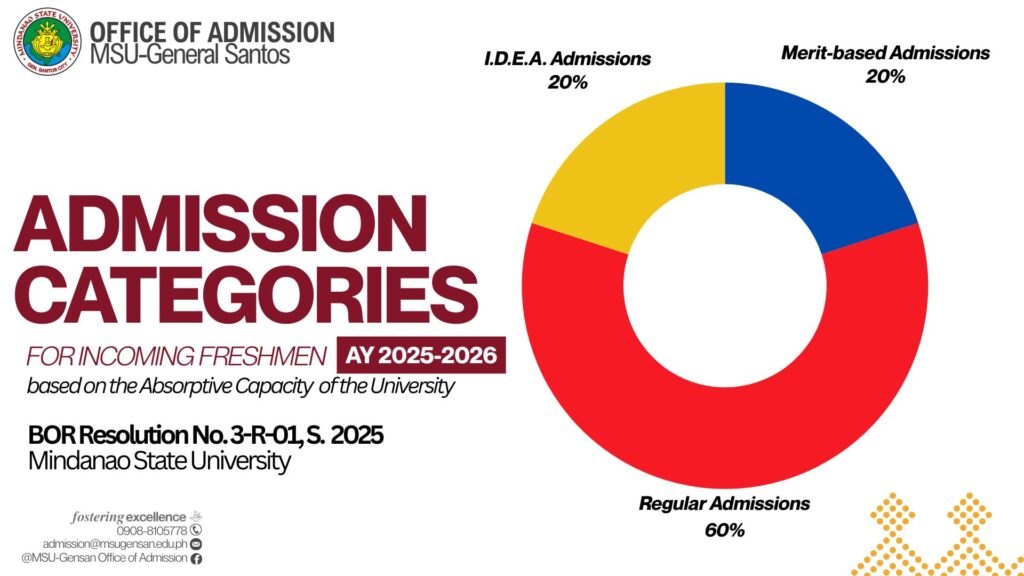
Mindanao State University – General Santos City has reaffirmed its commitment to transformative and equitable education with the launch of its IDEA Admission Policy, which stands for Inclusivity, Diversity, Equity, and Access. Approved under BOR Resolution No. 3-R-01, s. 2025, the IDEA Admission Policy aligns with the university’s strategic direction of serving as an institution for all—especially the underserved, underprivileged, and marginalized sectors of society. The Office of Admissions announced that while test performance remains an important component of the admission process, the revised policy now incorporates inclusive criteria that consider diverse life backgrounds, demonstrated skills, and individual talents. This approach ensures that deserving students from all walks of life have opportunities to pursue higher education at MSU-General Santos. The new admission policy also opens multiple pathways for enrollment, giving priority to underprivileged yet capable students while upholding the university’s mission of providing quality education that transforms lives. University leadership emphasized that this policy reflects MSU-Gensan’s role as a people’s university, committed to inclusivity, social justice, and nation-building through accessible education. As MSU-General Santos implements the IDEA Admission Policy, it signals a renewed pledge to foster an academic community where everyone, regardless of background, can thrive, excel, and contribute meaningfully to society. For incoming freshmen and their families, the Office of Admissions encourages careful review of the revised Admission Criteria and Process, now designed to recognize the unique strengths and potential of every applicant.

